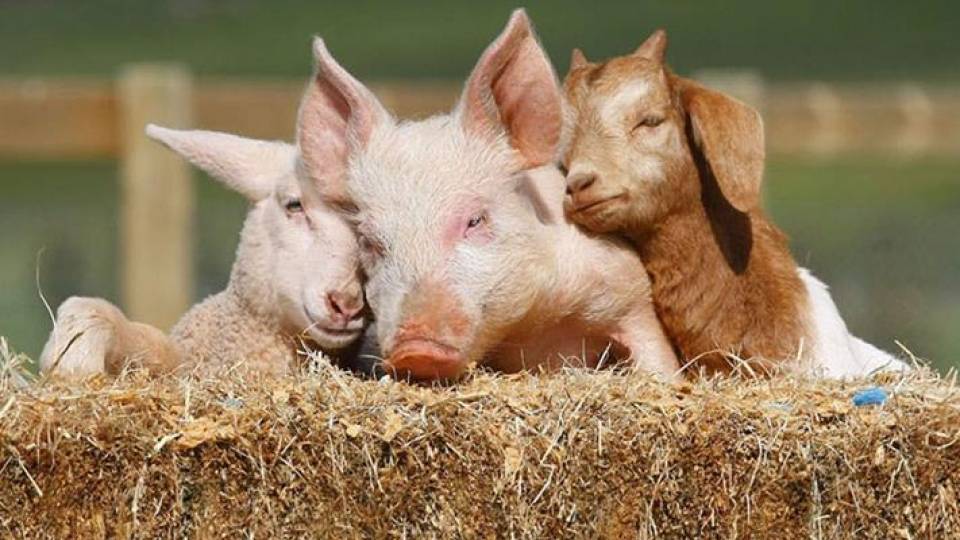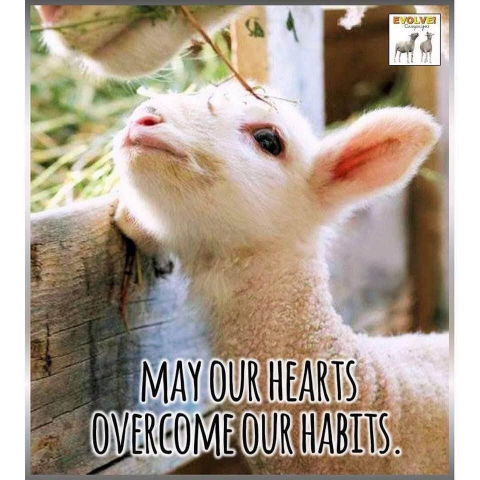Know the impact you can have by being a vegetarian / vegan. Every time you choose compassion, you’re making a difference!
Environment
-
Animal agriculture generates billions of gallons of waste - consisting of feces, urine, blood and rotting body parts
-
Animal agriculture is the leading cause of deforestation
-
Plant-based actions reduce our carbon footprint; methane / greenhouse gas emissions are a significant contributor to climate change
-
One-third of the earth’s fresh water is used by the meat and dairy industry
Farm animals are sentient beings with many human characteristics and emotions
-
Cows are complex, social animals who bond and grieve when friends or family die
-
Pigs are highly intelligent, equal to a dog or a young child, and are family oriented
-
Goats are very curious and social and play, fight and make-up
-
Turkeys nuzzle, snuggle and produce a purr when content
-
Chicks learn from their mothers who steer them away from unhealthy food or predators
-
Sheep are problem-solvers and can remember at least 50 other sheep for years
The scourge of factory farms
-
Hidden from public view, the cruelty that occurs on factory farms Concentrated Animal Feeding Operations - CAFOs) is easy to ignore, but it is immense and brutal. For farms animals it is a short life confined in crowded cages, pens or restrictive stalls, 24/7, never seeing daylight, and often subject to abusive practices – all the mistreatment and a miserable existence to maximize profits. And there is no greater killer of animals.
View YouTube video: The Hardest Part About Being a Vegan
https://www.youtube.com/watch?v=uGwBe3N2E_Y
A more healthy diet
-
Plant-based diets have been shown to help manage, prevent and in some cases even reverse cancer, diabetes and heart disease. They tend to lower weights, cholesterol levels and blood pressure.
-
Plant based foods are more available and accessible and better produced, cooking classes and books continue to increase, and there are more restaurants catering to vegetarian and vegan diets.
-
As precision fermentation (faux meat) becomes better and more advanced, innovative business models are producing ever-improving products that are less expensive than animal-derived products, and are also more nutritious, better tasting and more convenient. This protein disruption will be driven by economics.



